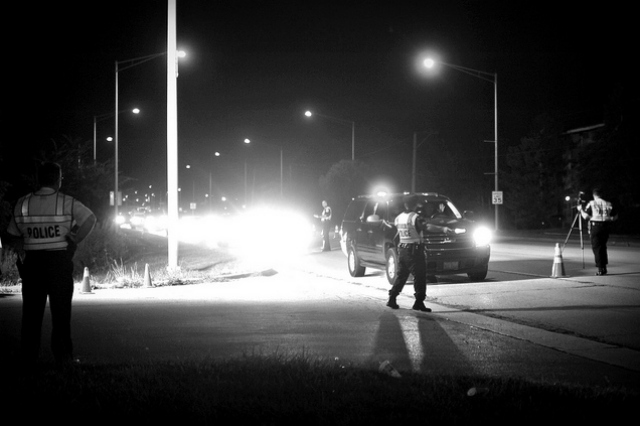Police DUI Checks Are Still Targeting Black And Latino Areas
By Kate Shepherd in News on Sep 10, 2015 4:10PM
The Chicago Police Department is continuing to conduct Driving Under the Influence checkpoints predominantly in African-American and Latino neighborhoods—even after suggestions that the practice is discriminatory.
A Tribune follow-up analysis of DUI checkpoints shows that an overwhelming 84 percent of the city's roadside checks in the last five years were slated for black and Latino neighborhoods, and the disparity hasn't changed much since the Tribune first published these numbers in May.
The Tribune's Angela Caputo says the pattern hasn't changed since the initial investigation. Between March and August of this year, Chicago police scheduled 14 checkpoints: nine of the checks were in majority African-American police districts, four were in majority Latino communities and only one was in a majority white area.
The districts with the most checkpoints typically do not have the highest number of DUI-related crashes and the checks are catching few drunk drivers.
The Harrison District on the West Side has seen the most checks of any area in the city, three since March, but it ranks 10th out of the 22 police districts in the number of alcohol-related crashes, the Tribune reported.
No DUI checkpoints have been scheduled in the Jefferson Park district, the majority white neighborhood where about one-fifth of Chicago police officers and their families live, since February 2010. Yet Jefferson Park ranks 3rd out of the 22 districts for alcohol-related crashes.
The numbers raise questions about why police target minority neighborhoods. Chicago's DUI checks are part of a larger police traffic stop problem, which disproportionately affects black and Latino communities, according to Adam Schwartz, an attorney with the American Civil Liberties Union of Illinois.
"Are decisions about where to put DUI checkpoints part of a larger context of policing in a big city?" Schwartz told the Tribune. "The city really needs to explain itself."
